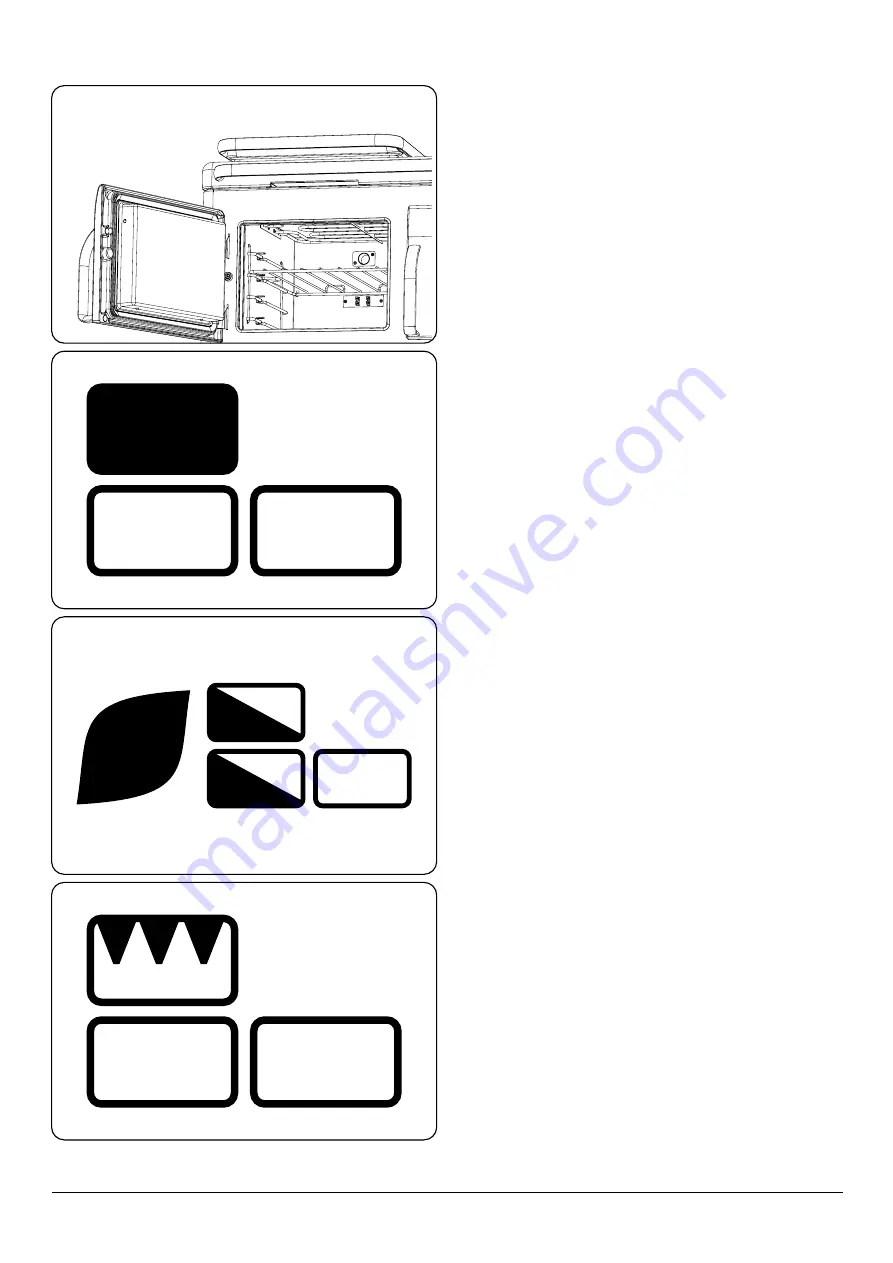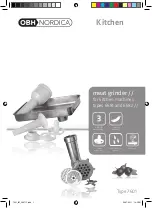
9
Upper Oven
The Stanley NUA Electric
UPPER
oven is indirectly heated by
two elements, one concealed in the base of the oven and the
other is visible in the roof (
Fig. 6.2
). These elements heat the
twin walled cavity to provide cooking results consistent with
traditional heat storage ovens, but with the flexibility to turn
the ovens off when not in use. The appliance features three
settings
ROAST, GRILL
& ‘
e
’.
The
ROAST
setting (
Fig. 6.3
) is zoned in heat, meaning that
towards the top it’s slightly hotter than the centre and the
centre is slightly hotter than the lowest position. It is suitable
for high temperature cooking, such as roasting, scones,
baking pastries and bread.
The ‘
e
’ setting (
Fig. 6.4
) converts the upper oven to a
moderate
BAKING
oven, ideal for cakes, biscuits and
anything requiring moderate heat such as fish pie, lasagne,
soufflés, crumbles and roulades. Meat and poultry can be
cooked here over longer periods of time. For best results
when baking cakes; place them in the middle of the oven,
swap trays if using more than one shelf and allow air
circulation around trays and tins.
The
GRILL
setting (
Fig. 6.5
) utilises the top element in the
upper oven to provide cooking heat within the cavity.
THE GRILL DOOR MUST BE KEPT CLOSED WHEN THE GRILL
IS ON.
1.
When operating the grill, the cooling fan will also
operate
2.
For best results preheat the grill for approximately 2
minutes from Roasting setting and 5 minutes from ‘e’
setting and 10 minutes from cold.
3.
The grill has 4 shelf positions (see
Fig. 6.2
), the higher
positions for fast cooking and the lower settings for
slowing cooking and browning gratins and pies
CAUTION
: Accessible part may be hot when the grill is in use.
Young children should be kept away.
PLEASE NOTE
: When the grill is in use the power to the ovens
is cut. Normal grilling unless for very long periods will not
affect the heat retention in the ovens.
It is not recommended to cook in the ovens at the same time
as operating the grill.
FOR THE BEST RESULTS USE THE GRILL FOR A MAXIMUM
OF 30 MINUTES.
e
Fig. 6.2
Fig. 6.3
Fig. 6.4
Fig. 6.5














































